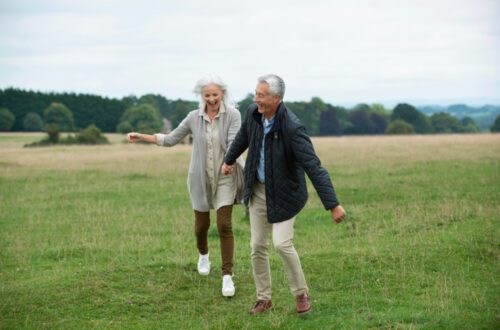Active retirement communities make it easy for seniors to spend their days doing activities they love. And without the worry of home maintenance, residents can focus on pursuing hobbies and joining clubs they enjoy.
Regarding cliques, respondents who live in these communities acknowledge their existence but do not consider them problematic. Why?
Sense of Community
If you’re in the market for a retirement community, it’s essential to find one that meets your needs. Check their website for amenities like beauty salons, barbershops, on-site convenience stores, gyms, golf courses, transportation services, and social activities.
You’ll also find that active retirement communities are full of people with exciting lives who can relate to your own experiences. It’s not unusual for retirees from the same state or town to meet at a social event and quickly discover they have places and even friends in common.
McMillan and Chavis define a sense of community as a feeling that members belong, a belief that the community matters to members and that they matter to the community and a shared faith that the community can provide for its members’ needs. Although difficult to measure, many benefits are associated with a strong sense of community, including a greater sense of belonging, security, and well-being.
Sense of Belonging
Active retirement communities provide a space where seniors can connect with like-minded adults who are in the same life stage, and often they offer plenty of opportunities to socialize and enjoy activities together. Many offer clubhouses and spaces for groups to meet, bus tours, and other fun activities. The community usually takes care of Home and landscape maintenance, so residents no longer have to worry about that aspect.
Our study participants were members of a physical activity group, a South Asian cultural group that met at the recreation center, and a neighborhood association Chinese group. A purposive snowball sampling technique was used to recruit and interview these groups about their experiences of belonging in suburban communities. The interviews were analyzed using qualitative methods. Even though social cliques were evident, respondents did not express dissatisfaction with their community or view them as a source of isolation or stress.
Sense of Independence
Living in a 55+ community can be an excellent option for those who want to remain independent during retirement. In these communities, residents take care of many of the chores and responsibilities of owning a home. This allows residents to enjoy a low-maintenance lifestyle and focus on the things they love, such as traveling or trying new hobbies.
Additionally, 55+ communities typically host a variety of social activities and events to help their residents meet people who share similar interests. These opportunities can lead to new friendships and support networks among neighbors.
While it may seem like a big sacrifice to leave the house you’ve lived in for your entire life, there are many benefits to moving into an active retirement community. Consider why you might consider moving: maybe your house is too big and challenging to keep up with, or you no longer have an interest in handling home maintenance.
Sense of Value
Many retirees enjoy the value of living in a community designed specifically for people over 55. These communities offer amenities like beauty salons, barbershops, on-site convenience stores, and transportation services. They also provide social activities, golf courses, tennis courts, pools, fitness centers, and more.
Residents also cut out a lot of daily chores and tasks that come with homeownership, such as mowing the lawn or fixing the roof. Instead, they’re left with free time to spend on hobbies and interests they’ve kept up through the years or take the opportunity to explore new ones.
It’s important to visit communities before you decide to move in. Request financial statements and ask about a tour (due to COVID-19 restrictions, in-person times may be unavailable). Ensure to include a friend with you to give an objective second opinion. You want to know you’re making the right decision for your future well-being.






